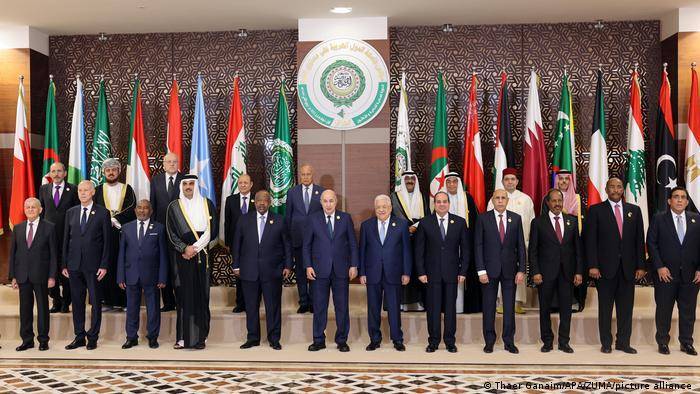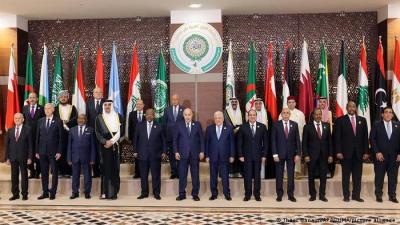The 32nd Arab Summit will be held in Riyadh in May next year, gaining exceptional political significance as it follows the Saudi-Iranian agreement, the restoration of diplomatic relations between Riyadh and Tehran, and the overcoming of political differences between them. The positive outcomes of this agreement are quickly materializing, particularly regarding the transformation of the current truce in Yemen into a permanent peaceful solution, with hopes for gradual political breakthroughs in Iraq and Lebanon, and providing space for Iran and Gulf countries to engage in serious negotiations over security arrangements in the Gulf region. It has been said that the region before the agreement is not the same as after it. Notably, Arab summits have often included condemnatory positions towards Iran's actions in the region.
This year's summit is also significant due to the potential participation of Syria after a period of isolation lasting about 12 years. As such, the time until the summit, for which the participating countries have not yet received an agenda, is short, with reports indicating the possible participation of Syrian Foreign Minister Faisal Mekdad, while the Lebanese President will be absent due to a vacancy, as the caretaker Prime Minister Najib Mikati or Foreign Minister Abdallah Bou Habib is expected to attend.
Many agree on the exceptional circumstances surrounding the summit and the importance of the positive regional developments coinciding with its holding in Riyadh, ranging from Turkish-Emirati rapprochement to Turkish-Saudi and Turkish-Egyptian improvements. The possibility of halting the Sunni-Shiite conflict and the Iranian-Saudi strife in Yemen, Iraq, Syria, Lebanon, and other states has become likely, leading to a new regional equation emerging and significant, even historic, changes in the region. Hence, the next Arab summit will address new topics, according to former Foreign Minister Faris Bouez in an interview with "Warda".
As efforts and meetings continue to reintegrate Syria into the Arab fold and the Arab League, five Arab countries oppose its return, with Qatar being the most stringent opponent. Saudi Arabia is attempting to ensure that Qatar does not object in case of a vote. Bouez noted that it is unclear whether, in the short time remaining, issues preventing Syria's participation at the summit level can be resolved. "However, what is certain is that preparations for its return will take place, and Syria's absence from the Arab League is unnatural; its return is welcomed. It is very regrettable that the Lebanese President cannot participate due to the vacancy."
The current rapprochement among regional countries aligns with the ongoing approach to resolving issues and ending all pending files, indicating that the summit will be conciliatory among Arab leaders. If things go according to plan, the summit will mark the beginning of a new reality that necessitates solutions to its issues and crises. In this regard, Hossam Qattab, director of the Lebanese Center for Research and Studies, expressed that "there is a conviction that this region must be calm and stable to allow development to return. If negotiations continue successfully, peace will soon be established in the region." Regarding Syria's participation, it will have positive implications for Lebanon, whether in the presidential elections or shifting the political reality towards calming down and restoring financial stability, according to Qattab. He raises the question, "Will Iran adhere to the agreement? The positives hinge on this adherence."
Saudi Arabia is making earnest efforts to unite the Arab world before the summit takes place on its territory. Saudi Foreign Minister Prince Faisal bin Farhan confirmed on March 7 that "increased communication with Syria may pave the way for its return to the Arab League along with improved relations after more than a decade of isolation, but it is too early to discuss such a step at this time." Media reports, cited by Reuters from informed sources, indicate that Saudi Arabia intends to invite President Bashar Assad to attend the Arab summit, which would officially end the regime's regional isolation, revealing that the Saudi foreign minister will travel to Damascus in the coming weeks to deliver an official invitation to Assad for the summit scheduled for May 19.
During Syrian Foreign Minister Faisal Mekdad's visit to Jeddah, where he was received by his Saudi counterpart Faisal bin Farhan, an agreement was reached to reopen the embassies of both countries after a 12-year rupture. Prior to that, the official visit made by the Syrian president to the UAE, which followed his trip to Oman, was significant. A meeting of the Gulf Cooperation Council also took place in Jeddah last week, which included Iraq, Egypt, and Jordan to discuss the issue of Syria's return to the Arab League, but no decision was reached in this regard. Additionally, significant discussions occurred between Saudi Foreign Minister Faisal bin Farhan and Syrian Foreign Minister Faisal Mekdad regarding "the necessary steps to achieve a comprehensive political settlement of the Syrian crisis that ends all its repercussions, achieves national reconciliation, and contributes to Syria’s return to its Arab surroundings and the resumption of its natural role in the Arab world."
On the agenda for the participating Arab leaders at the upcoming summit will be economic issues and the challenges facing the countries due to global crises, alongside political issues such as the Palestinian cause, which is witnessing an Israeli escalation under an extremist government. The Lebanese political crisis, marked by the failure of various parties to elect a president, is also expected to be discussed, along with the Saudi-Iranian rapprochement, which will be brought to the table. The Secretary-General of the Arab League, Ahmed Aboul Gheit, previously confirmed that the agreement between Riyadh and Tehran "ends the state of escalation and is an indicator of a positive phase in bilateral relations."




